Film Review: Mank (2020)


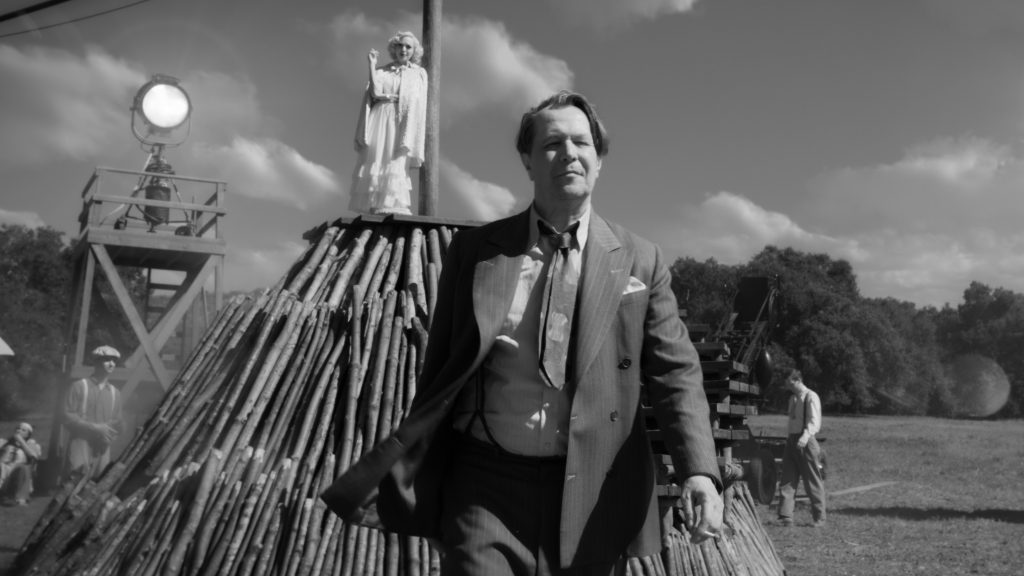
More legends surround the 1941 Orson Welles classic Citizen Kane than any other movie in history. It has been said that it is the most written about and discussed film of all time, and I have no reason to doubt that. It has been so dissected that there hardly seems anything left to discover, yet its magic and mystique live on right up to today. When it comes to Citizen Kane, the folklore surrounding its production is built into its myth, and to appreciate the film’s importance, it helps to understand the circumstances surrounding its creation – most importantly, how it was written, by who, and who about.

The script for Citizen Kane was written by a notoriously drunken and self-sabotaging (yet immensely talented and begrudgingly loved) screenwriter named Herman J. Mankiewicz. Famously, Mankiewicz – known as “Mank” to his friends and tolerators alike – had originally agreed to allow Orson Welles full credit for writing what would become the standard-bearer of American cinema (he needed the money), but balked at the last minute after realizing his screenplay was the best thing he’d ever written. Furious, Welles eventually agreed to share credit with Mankiewicz only after the threat of involving the newly-formed Screen Writers Guild was invoked.
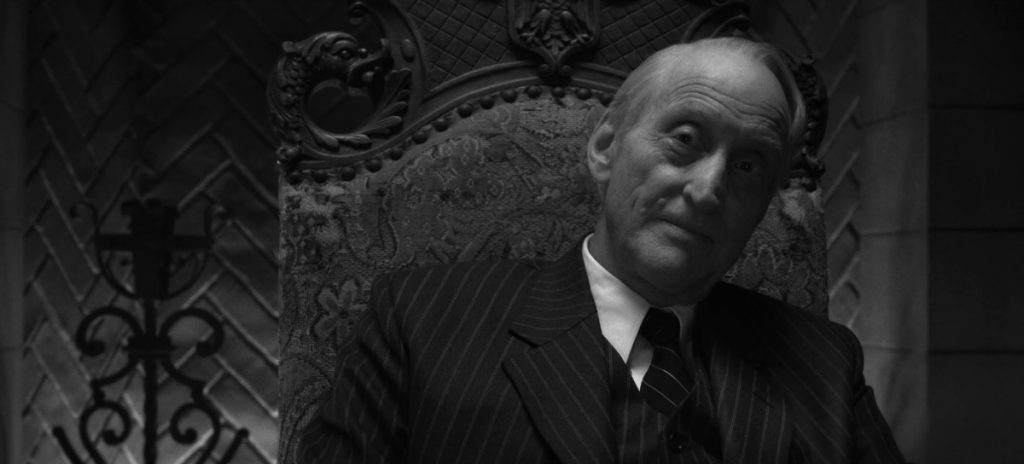
Mankiewicz claimed that he was the sole author of the script (a testament that is hotly contested by many and vigorously defended by others, such as film critic Pauline Kael, who penned a 1971 essay for The New Yorker titled “Raising Kane” which gives Mankiewicz full credit) and that Welles merely offered notes on his work and helped him slim down the bulky first draft into a workable, filmable screenplay. That Welles would insist on taking full credit for a script that everyone in Hollywood knew was, at least in part, written by someone else seems absurd by today’s standards, but in the 1930s, writers were considered by many in the business to be an unimportant waste of money, and thus, not worth the paper their names are printed on.
At the 14th Academy Awards in February 1942, Citizen Kane was nominated for nine Oscars. It won only one – for Best Original Screenplay. Neither Orson Welles nor Herman Mankiewicz attended the ceremony to receive their awards.
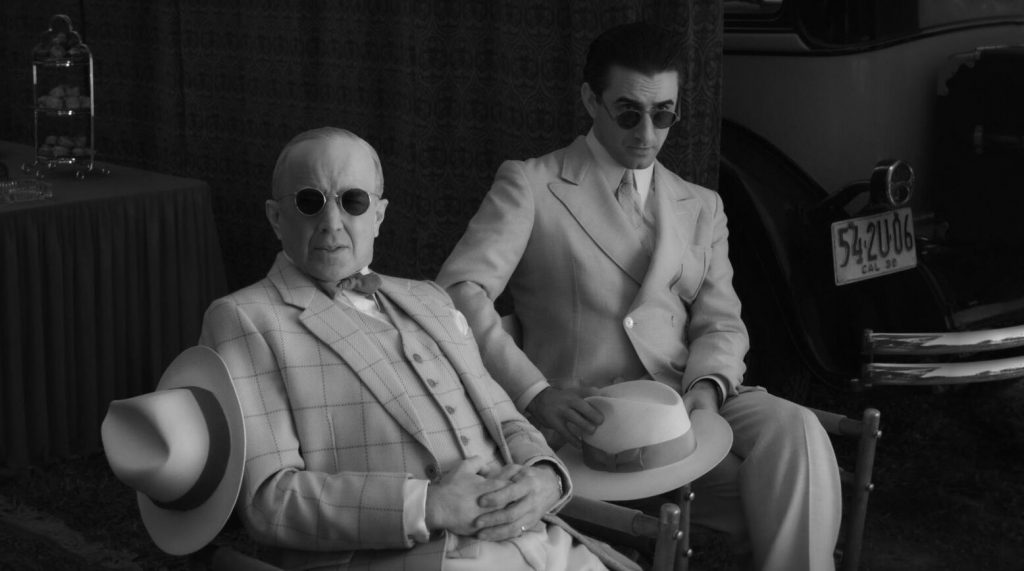
In Mank, director David Fincher (with a screenplay by his late father Jack Fincher, and heavily influenced by Kael’s New Yorker piece) doesn’t dwell on this now 80-year-old debate about who wrote what for very long. Instead, he focuses on how the lovable drunkard (a brilliantly tipsy Gary Oldman) came to find his inspiration for Citizen Kane in the first place, the unorthodox conditions under which it was written, and the powerful people its release pissed off. Not content with just choosing sides, though, Mank also serves as a fascinating indictment of how powerful men freely and unremorsefully influence culture and politics using their very deep pockets.
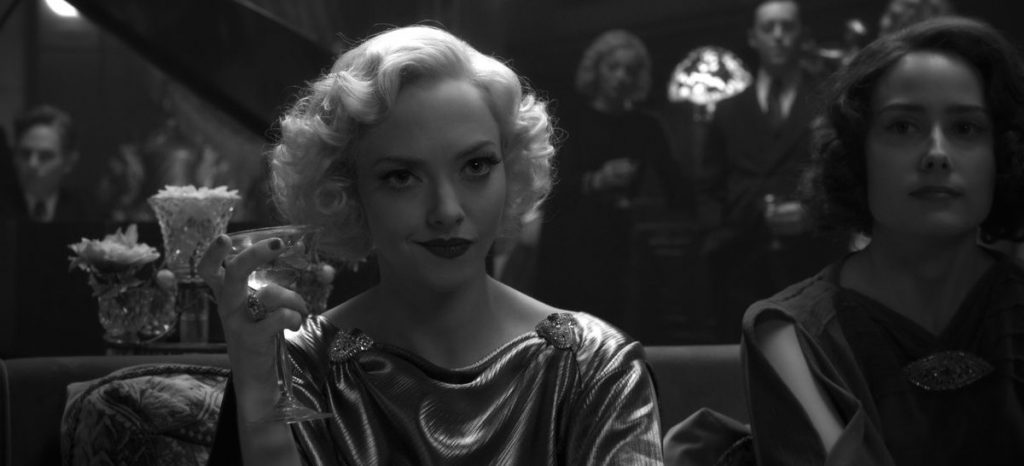
As an insider’s look at Hollywood’s red scare propaganda techniques in the 1930s, Mank is both subtle and on-the-nose. Watch how Mankiewicz uses his biting wit to outsmart big studio players like Irving Thalberg (Ferdinand Kingsley) and Louis B. Mayer (Arliss Howard), only to have his own words thrown back at him in the form of newsreels produced with the specific intent of discrediting socialist California gubernatorial candidate Upton Sinclair (played by Bill Nye – how perfect is that?). While Mank may never come right out and declare a stance on issues like socialism or money in politics (Mankiewicz himself is portrayed as interested in politics, but not that interested) comparisons to present-day debates raging across family dinners and cable news outlets are evident. Mank may not be an overtly political film, but its understated implications are unmistakably barbed.
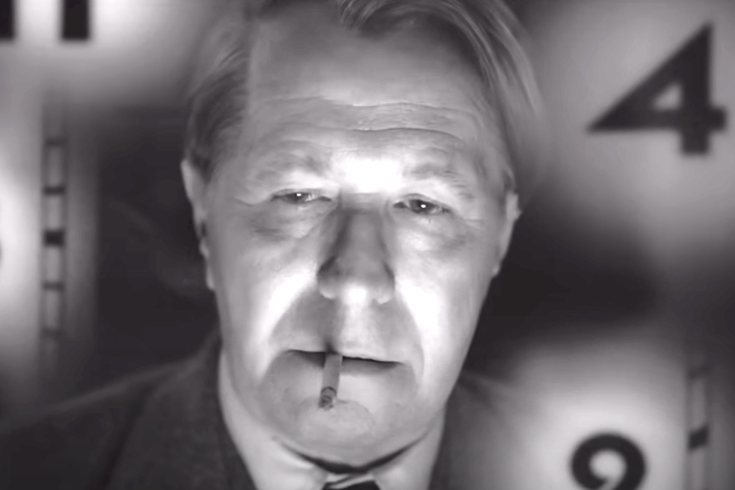
Deep understanding or analysis of Citizen Kane or its significance is (probably) not a certified prerequisite for enjoying Fincher’s film, but the director has populated Mank with so many easter eggs that even as much as a passing familiarity with its central players – Mankiewicz, Welles (Tom Burke), William Randolph Hearst (Charles Dance), Marion Davies (Amanda Seyfried), and others – may enhance your experience. Besides, it’s fun to be in on the joke. (watching Mankiewicz and his arrogant writing team pitch a horror movie to David O. Selznick and Josef von Sternberg is the stuff film nerd dreams are made of, after all.)
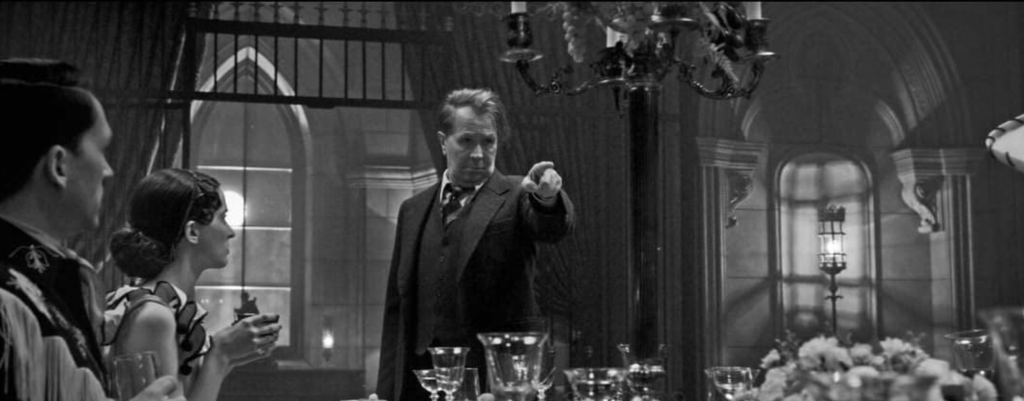
From its opening title cards (complete with flecks of dust on the scrolling text) to rear-projection; to film grain, “cigarette burns,” and a slightly muffled, tinny soundscape, Mank, from its first frame to its very last, nostalgically – and effectively – conjures the sites and sounds of an era many consider “Golden.” For fans of old movies, Mank‘s immaculately detailed production should prove irresistible all on its own, but it does have more on its mind than just glitz and glamor for those whose tastes stray towards the modern. It’s clear that Fincher and cinematographer Erik Messerschmidt went through great pains to mimic the looks and sounds of old Hollywood, but, with the help of Jack Fincher’s wonderful screenplay, Mank also delivers one hell of a story.
